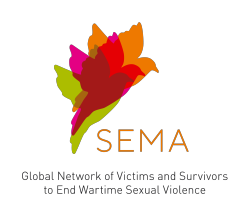International Humanitarian Law
III.6 Special protection against CRSV is owed to refugees, stateless persons and transferred persons
Under the Fourth Geneva Convention, 'protected persons' are those who, at a given moment and in any manner, are in the hands of a party to the conflict or occupying power. Refugees who qualify as protected persons within the meaning of the Convention benefit from the protection owed to non-nationals in the hands of a party to the conflict or occupying power. Stateless persons also qualify as protected persons.
In addition, refugees who are not, in fact, under any government's protection, enjoy special protection under article 44 of the Convention. In applying measures of control and security in regard to protected persons as may be necessary because of the war, States must not treat refugees as enemy non-nationals exclusively on the basis of their nationality, in law, of an enemy State. Refugees in occupied territory that are not considered protected persons also enjoy certain protections under article 70(2) of the Convention. For the purposes of IHL, the term 'refugee' should be understood in a broad sense; the only criterion being that the individual in question does not 'enjoy the protection of any government'.

 EN
EN FR
FR ES
ES UK
UK



